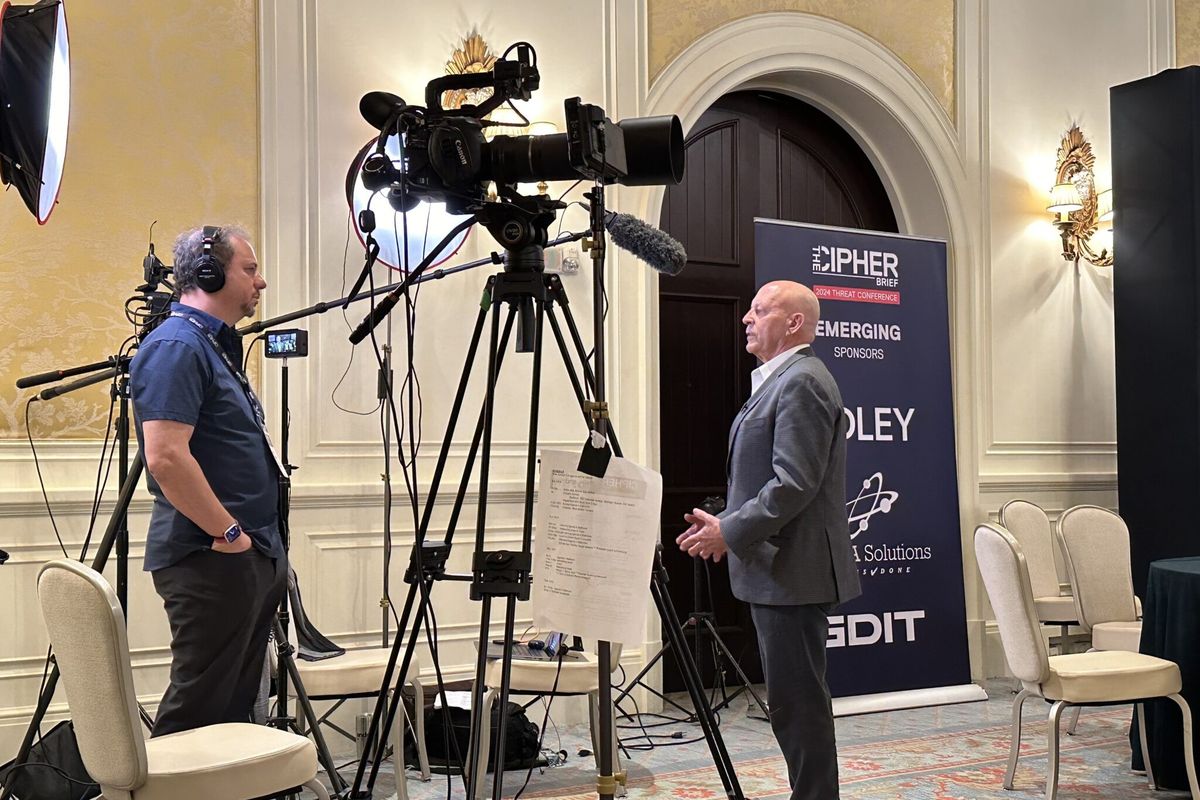The “Big Six” of U.S. intelligence on Thursday broke down the major threats facing the next administration and their respective agencies, warning that ISIS will remain an issue long after the group is territorially defeated.
During a wide-ranging discussion at the Intelligence & National Security Summit in Washington, D.C., CIA Director John Brennan, FBI Director James Comey, U.S. Cyber Command Chief and National Security Agency Director Adm. Michael Rogers, Defense Intelligence Agency Director Lt. Gen. Vincent Stewart, National Geospatial Intelligence Agency Director Robert Cardillo, and National Reconnaissance Office Director Betty Sapp tackled questions on ISIS, how technology has changed their work, and what they want to see from the private sector.
What’s next in the ISIS fight
Stewart said he imagines an operation to take back the Iraqi city of Mosul “will unfold sometime in the next two or three months.” But, he noted, it will not be an easy task, given the difficulties of urban war fighting and the time ISIS (also known as ISIL) has had to prepare to defend its position. Stewart said he is also concerned about the danger of succeeding too quickly on the ground, before the Iraqis and their partners are prepared with the governance and humanitarian efforts that would be needed once the city is recaptured.
Even with territorial losses, ISIS “will remain a presence inside of Syria and Iraq for quite a while to come,” Brennan told conference attendees. The terrorist group will also continue to pose a major threat to the United States and other governments, given the problem of returning fighters.
“This phenomenon of ISIL … is going to continue to be a problem for the local governments because they’re going to go into a number of areas where the government doesn’t have control or is able to project force, but you also have a lot of these foreign fighters that have come into the theater that will either stay and fight and die trying, or they will try to return to their home countries,” he said. “And some of them may be rehabilitated, some of them may see they were on the wrong path. But I do think a number of them are going to remain a challenge for the United States as well as for other governments for a number of years to come.”
Comey agreed, telling the crowd that “the threat that I believe will dominate the next five years for the FBI will be the impact of the crushing of the caliphate.” Hundreds of “hardened killers who are not going to die on the battlefield” will flow out, with a large number likely to head north into western Europe.
It is crucial that the U.S. intelligence agencies are prepared to handle Paris or Brussels-type attackers who will try “to take the fight here to maintain ISIL’s cred in the global jihad world.” That will “dominate our lives,” according to the FBI Director.
Both Brennan and Comey said that working better across international boundaries and encouraging European partners to do the same to help share and act upon intelligence will be key to the upcoming challenge of a post-caliphate ISIS.
While Comey said he anticipates that ISIS will lose its ability both to attract travelers and produce slick propaganda to “motivate screwed up people to engage in acts of violence,” he also warned that the IC faces the phenomenon of “going dark,” where due to encrypted communications, intelligence professionals lack the technical ability to gain access to and intercept information.
“We cannot see these people and the way in which they’re communicating. So we are working very hard to find ways to get our people, whether they’re our sources or undercovers, in places where they can see the communications,” he said.
How cyber has changed the intel game
The intel heads also addressed the massive changes that cyber has wrought on their work, from hacking to the need to think about how artificial intelligence (AI) and machine learning will augment analysis. Rapid technological changes have “fundamentally changed” how intelligence and law enforcement do their work, Brennan said.
“We are heading inevitably to a world where artificial intelligence is in our midst,” the CIA Director said.
AI and machine learning will be particularly crucial in the area of cyber defense, Rogers noted, helping to optimize resources and improve quickly to address the problem. But while AI and big data will become important to intelligence tasks, they will not replace the “human dynamic,” he said. “It’s got to be some combination of the two,” Rogers said.
Sapp said it is key to have “ground systems that can learn and operate at the speed of cyber, not at the speed of human beings making decisions.”
“That’s been a big change for us, and I think it’s going to be a huge change for the community in terms of the way we task and do our business. And they’re not only systems that can learn and think, they are systems that can integrate across intelligence disciplines and across domains,” she said.
As for why the intelligence community has seemed to tiptoe around attributing the recent hacks targeting the Democratic National Committee, even when President Barack Obama has said that “experts have attributed this to the Russians,” Comey said the FBI is not looking to confirm any details in the public sphere for the perpetrator to see, “especially while we’re gathering information.”
Improving public-private partnerships
The six intelligence chiefs also touched on the importance of private sector partnerships during their conversation at the summit, with Sapp pointing out that the commercial sector “has caught up with and surpassed” what her agency needs regarding IT. “The basic processing power, computer power, is there for us to buy” commercially, and “we’ll take more advantage of that in the future,” she said.
The directors also highlighted the various programs that allow for public-private employee exchanges. But Cardillo noted that his agency’s four-month old effort for public-private personnel exchanges has “got spider webs around it, okay — it just has not been leveraged.”
Brennan, meanwhile, touted such connections and exchanges with the private sector as key to the future for the IC.
“It’s going to be more important in the future, particularly as we get to issues to try to resolve this tension between security and privacy, civil liberties, because there’s going to be an unprecedented need for a partnership between the public and private sector if we’re going to help to secure and ensure the prosperity of that digital environment in the future, since it is privately owned and operated,” he said. “And that’s why I think this interaction and cross-fertilization between the public and private sector needs to be the way of the future.”
Mackenzie Weinger is a national security reporter at The Cipher Brief.












